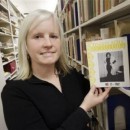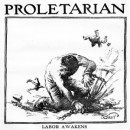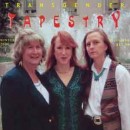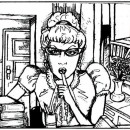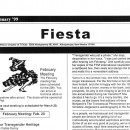Preserving Trans History: A Short History and Suggestions for the Future (2014)
Clearly the mere establishment of a trans archive at the University of Michigan has resulted in donations in the form of money and materials—and clearly the university itself is proud of the collection and is motivated to grow it. And clearly, the collection has grown since 2000.
Read MoreNTL&A Dedication Ceremony Program Book (2004)
In 2004 the University of Michigan held a dedication ceremony for the National Transgender Library & Archive.
Read MoreNTL&A Holdings at The LGBT Historical Society of California
When the Board of Gender Education & Advocacy, Inc. donated the National Transgender Library & Archive to the University of Michigan, we requested duplicated be awarded to the LGBT Historical Society of California.
Read MoreThe U-M’s Labadie Collection Now Includes a T-Shirt That Reads, “Boys Will Be Girls.” (2004)
Highlights from the NL&A will be on exhibit at the Hatcher Graduate library through May 29. Denny’s own favorite item is a 1953 program from Madame Arthur’s the Parisian transvestite cabaret. Herrada points out a pair of narrow, black high-heeled sandals with peach rosettes that were worn by Virginia Prince.
Read MoreLibrary Acquires Materials on Transsexual/Transgender Movement (2001)
The National Transgender Library and Archive (NTL&A), a vast repository of materials documenting the history of the transgender movement, is now part of the University of Michigan Library.
Read MoreTwenty-Nine Linear Feet! (2013)
Twenty-nine linear feet! If you’re a book geek, if you’ve spent a lot of time in libraries and archives, you’re already excited. If not, let me the space a collection takes on a library’s shelves is described in linear feet. In this case it’s the cumulative length of the pamphlets, flyers, and correspondence of The National Transgender Library & Archive materials at the Labadie Collection at the University of Michigan in Ann Arbor. Thousands of books and hundreds of journal titles are housed elsewhere in the archive and aren’t counted in those twenty-nine linear feet.
Read MoreGEA’s Request for Proposals for Award of National Transgender Library & Archive (2000)
Gender Education and Advocacy (GEA) is in search of a permanent home for its National Transgender Library & Archive (NTL&A), a large collection of books, magazines, catalogs, flyers, personal papers, and ephemera about transsexualism and transgenderism currently located in Atlanta, GA.
Read MoreThe Origin of the National Transgender Library & Archive (2004)
When I was fourteen years old, I went to the card catalogue of the public library in the small (pop. 30,000) southern town in which I lived and looked up the words transvestite and transsexual. I was scared to death.
Read MorePreserving Our History (2001)
Ten years ago I came to realize that as a community we had little sense of our history. There seemed to be no libraries, archives, or repositories for transgender materials, and few of our national organizations maintained archival copies of their own materials. A few organizations, most notably Tri-Ess, had been wise enough to donate archival materials to universities and archives, but for the most part, our history was being discarded and destroyed on a daily basis.
Read MoreThe Impact of Emerging Technologies on One Transgender Organization (2001)
In this paper I talk about the transition of the 501(c)(3) American Educational Gender Information Service from a brick-and-mortar provider of information to an online entity.
Read MoreSsshhh! The Newsletter of the National Transgender Library & Archive (1995)
Shhhh! was the newsletter of the National Transgender Library & Archive, a subsidiary of the nonprofit American Educational Gender Information Service. This was the first issue—a one-pager that made the community aware of AEGIS’ interest in preserving transgender history.
Read MoreOur Transgender Heritage (1999)
This disregard of our individual histories is reflected in our community’s lack of attention to its past. We have done little to preserve and honor our pioneers, our heroes and heroines, those men and women who gave their freedom or their lives because they dared to be themselves, those men who sweated blood to build the community.
Read More
